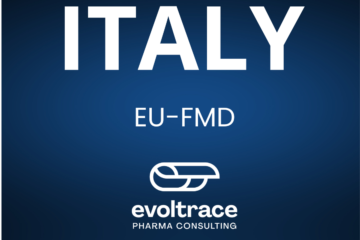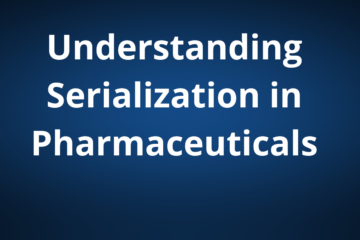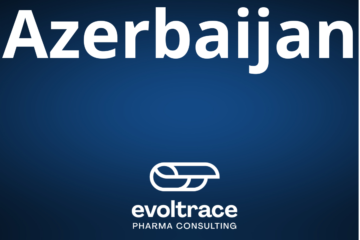Indonesia’s Pharmaceutical Serialization Regulations: An Overview
Indonesia has been steadily advancing its pharmaceutical serialization regulations since 2017, aiming to enhance the safety, traceability, and competitiveness of its pharmaceutical and food industries. The implementation of these regulations is being carried out in phases, with key milestones set for 2023, 2025, and 2027.
Regulatory Framework: BPOM’s Role and Key Regulations
The Indonesian Food and Drug Authority (BPOM) is the primary regulatory body overseeing the implementation of these serialization requirements. The foundation for these efforts was laid with the introduction of BPOM Regulation #33/2018, which focuses on the use of 2D barcodes to improve the supervision of medicines and processed foods. This regulation, along with the more recent BPOM Regulation No. 22/2022, outlines the requirements for serialization and aggregation, aligning Indonesia’s pharmaceutical industry with international standards such as those set by GS1.
Key Deadlines and Scope of Implementation
December 7, 2023:
All pharmaceutical products, including traditional medicines, over-the-counter (OTC) drugs, cosmetics, supplements, and processed foods, must be marked with an identification barcode. This QR code will serve to verify the legality of these products and is part of the broader effort to ensure traceability throughout the supply chain.
December 7, 2025:
Narcotics, psychotropics, and other high-risk products must be serialized and equipped with an authentication barcode. This 2D Data Matrix code will include detailed information such as the Product Identification Number (e.g., GS1 GTIN), Marketing Authorization Number (BPOM), Production Code or Batch Number, Expiration Date, and Serial Number. This phase marks the transition from identification to full product serialization, ensuring that each product can be tracked and verified at every stage of its lifecycle.
December 7, 2027:
All “hard drugs” (as defined by BPOM) must carry an authentication barcode. This final phase of the serialization rollout solidifies Indonesia’s commitment to securing its pharmaceutical supply chain against counterfeit products.
Understanding Identification and Authentication Barcodes
Identification Barcode:
Products that do not require serialization, such as OTC drugs, traditional medicines, cosmetics, and processed foods, will need an identification barcode by 2023. This QR code must contain essential data like the Marketing Authorization Number and NIE (Nomor Izin Edar) Number, a unique license number issued by BPOM. The NIE Number provides critical information about the product’s origin and offers access to additional product details via the Cek Produk BPOM database.
Authentication Barcode:
For serialized products, particularly prescription drugs, narcotics, and other high-risk items, an authentication barcode is required by 2025. This 2D Data Matrix code ensures the product’s authenticity by including detailed tracking information, such as the Product Identification Number, batch number, expiration date, and a unique serial number. Aggregation is also mandated at the packaging level, following GS1 standards, to maintain the integrity of the serialization process throughout the supply chain.
Aggregation and Reporting Requirements
Aggregation, the process of linking individual product units to a larger batch or shipment, has been mandatory since 2020. This requirement is crucial for maintaining a transparent and secure supply chain, allowing for the tracking of products from production through to the end consumer. BPOM mandates that product data, including aggregation details, must be reported to the agency and may also need to be shared with trading partners.
Exemptions and Specifics
While the serialization requirements are comprehensive, certain products are exempt from these regulations. These include blister packs, strip packs, pre-filled syringes, ampoules, and tubes weighing less than 5 grams, as well as drugs in volumes under 5 ml. Additionally, stick packs, single packaging, suppositories, and catch covers are not subject to the serialization requirement.
Preparing for Compliance
With the looming deadlines of 2023, 2025, and 2027, it is critical for pharmaceutical manufacturers, contract manufacturers, importers, and other stakeholders in the supply chain to prepare for compliance with BPOM’s serialization regulations. The complexity and scope of these regulations necessitate thorough planning and early implementation to ensure that all products meet the required standards.
Conclusion:
Indonesia’s phased approach to pharmaceutical serialization, driven by BPOM regulations, represents a significant step forward in enhancing product safety and traceability. By meeting these requirements, Indonesia not only aligns with global standards but also strengthens its position in the international pharmaceutical market. As the deadlines approach, industry stakeholders must ensure they are fully prepared to comply with these new regulations, safeguarding both their products and consumers.
Disclaimer: This information is provided ‘As Is’ and does not constitute legal advice. Users should refer to the source material for complete requirements and form their own interpretations before making business decisions.
Evoltrace elevates its clients, their company and team to their maximum potential. Meet your Serialization and Track-and-Trace challenges, Supply chain optimization and transformation by our trusted experts. Contact us: info@evoltrace.com
Reference: https://jdih.pom.go.id/view/slide/5e7a1094b03f71d4de3d925146d37a0a/1423/22/2022


